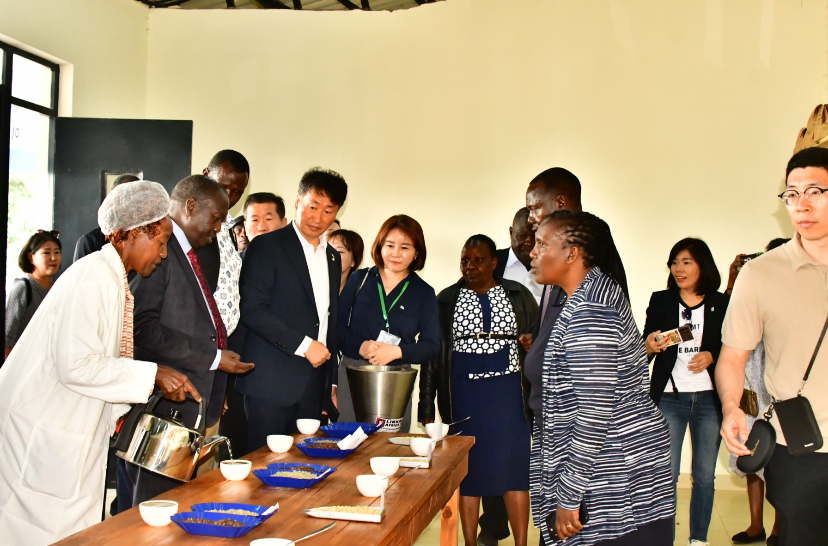A South Korea investor has pledged to buy 120 metric tons of Baringo Coffee in a bid to support local farmers earn from the lucrative sector.
The call was made during a visit by a delegation from Gyeonggi-do province to the Baringo Cha Coffee mill at Katimok in Baringo North Sub County.
World Best Friends leader Rev Cha Boyong said the move to buy the produce from this season’s harvest is geared towards turning around the livelihoods of local coffee producers.
Boyong, who donated 20,000 coffee seedlings for distribution to local farmers stated that his desire is to see a happy and prosperous county.
“My prayer is to see a happy and changed Baringo which can attract other global investors who have the heart to support in improving the living standards of residents,” he said.
Rev Boyong encouraged farmers to take advantage of the guaranteed market in the East Asian Country as well as other regions of the world in need of their coffee which he noted was of high quality.
Governor Benjamin Cheboi in his remarks lauded the delegation for agreeing to partner with his administration not only in boosting the coffee sector but also strengthening the county healthcare system as well as supporting in driving digital innovation within the region.
Cheboi highlighted the impact of transformative initiatives such as the Sh 100 million mill courtesy of the Korean investor which he observed has cushioned farmers from middlemen fond of purchasing their coffee at a cutthroat price.
The county boss revealed that for the short time they embarked on sensitizing farmers to venture into the cash crop, the region has witnessed an increased acreage under coffee which now prides itself on having about 5 million bushes.
He encouraged farmers from the region to team up with the newly recruited 148 extension officers working in coffee producing zones to improve the quality of produce.
By Benson Kelio and Joshua Kibet




